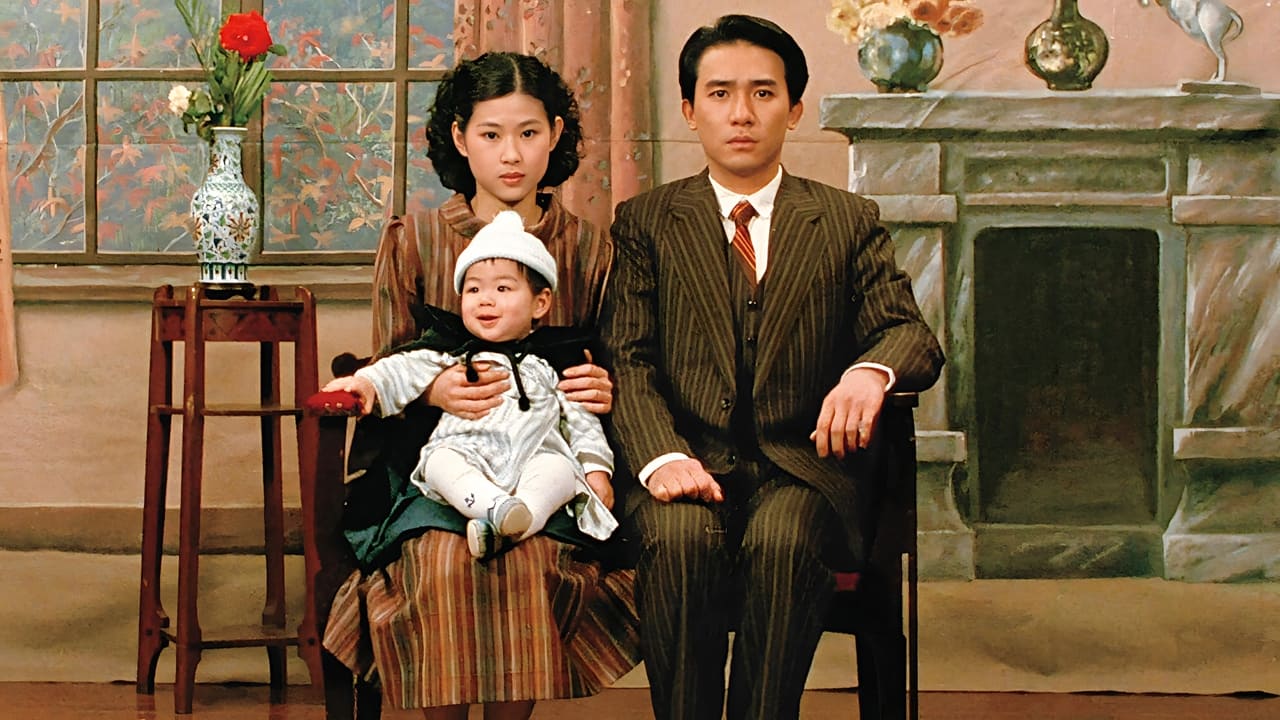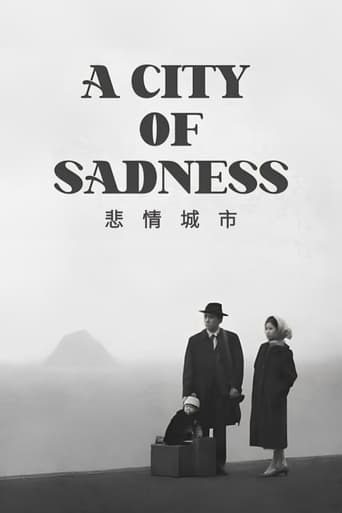



the leading man is my tpye
Good story, Not enough for a whole film
Great story, amazing characters, superb action, enthralling cinematography. Yes, this is something I am glad I spent money on.
View MoreThere is, somehow, an interesting story here, as well as some good acting. There are also some good scenes
View MoreSimply one of the best films ever made and certainly the best to have come out of China, Taiwan or Hong Kong. Forget about traumatic Taiwanese history, forget about other "epic" films from mainland China, or Taiwan, or Hong Kong. This one is one of the most profound statements about human condition and the relentless power of history. You can physically feel the winds of history blowing through a small hospital in the mountains, or a house of the person who will succumb to the inevitable, or a railway car caught in the middle of a massacre. Hou Hsiao-Hsien doesn't reconstruct history, he shows you human beings caught unawares and unable to cope with a totally unexpected avalanche of events destined to change their lives. Acting is superb, the mute character played by Tony Leung Chiu Wai (who, quite prosaically, couldn't speak Hokkien and had to be made mute) will haunt you for a very long time. One of the most underrated films from one of the most underrated directors. Spend two and a half hours of your life watching this, it's worth it. 10 out of 10.
View MoreAs my age, several section in this film makes me feel funny, such as the way they behavior, the words they said. It is too unbelievable for me to drive me away to feel the sadness. Just like listen to a story.However, it did happen. Several events I have heard from my grandmother; the setting is also like my mother's house in south country; the location, Chiu-Fen, I visited several months ago is still similar with the scene in the film. All I know about this period are from history books. Time would wipe people's memory. In case people would forget the sadness in our history, movie provides us to retract some part of that moment in our past time to allow us to learn what had happened around us. I have to say this movie is worth every people with any age in Taiwan or from Taiwan to see once in your life.
View MoreI'm having difficulties rating this film. I gave Hou's last film (that I saw), Dust in the Wind, a 7/10 because I felt it was slight and sloppy, but good nonetheless. CoS is even sloppier, but it is not in any way slight. However, when I'm desperately struggling to understand the film, trying to identify characters and interpret events, a lot of the power seeps away. I feel that the characterizations of DitW were more clear (if, again, slight), but CoS, despite its apparent cast of hundreds, I only identified with (and could identify, for the most part) the two main characters. However, I really did end up loving them and was very affected by everything that happened to them. Luckily, as the film progresses, it becomes less about everyone and everything else and focuses on those two characters, entering the genre of such films as The Unbearable Lightness of Being and Doctor Zhivago, i.e., movies where war is examined from the point of view of those who want desperately to live and love without hinderance, but keep getting pulled into the conflict. Still, the first three quarters of the film are very loose. I found myself saying often: "I can't recognize a single individual in this scene." I also kept coming back to the idea that this story would make a much better novel than a film. In a novel, it's much easier to follow the action.While Hou's narrative is still poorly devised (he wasn't the screenwriter, anyways), his cinematic technique is improving by leaps and bounds as I go from one film to the next. His shot composition utilizes depth to a great extent. We often see the action from a distance, and he uses the technique of blocking, putting characters and objects in front of the main action, to astonishing effectiveness. It makes us feel helpless in many of the more painful scenes.SLIGHT SPOILER: There's at least one amazing edit to which I have to call attention: the characters are all at a funeral and then there is a cut to an extreme long shot which encompasses a whole, small peninsula of Taiwan with the vast ocean behind it. In the distance, we see (and hear) a procession. I assumed it was a funeral procession, but the next scene reveals that it was a marriage procession, a marriage that I was beginning to doubt was ever going to happen. The funeral scene and wedding scene are masterfully connected with the intricate Buddhist ceremonies, and the emotional effects of this juxtaposition is marvelous. One more master scene that I have to point out is one where the deaf character (forgive me, but I tend to mix Asian names up and I don't even want to try) is in prison and soldiers take away two of his cellmates. We see a medium close-up of the deaf man and we hear two shots. I cringed, but of course, the character doesn't react because he can't hear them. The implications of that left me shivering.END SPOILER: So what am I going to give it, a 7 or an 8? I choose 7, but with the stipulation that I want to come back to it someday in the future to see if I can comprehend the narrative better. It's certainly a fine film, but I do feel justified in my complaints. There's also the fact that, as this is a foreign film, and it has a lot of dialogue, I'm so busy reading the subtitles that it is easy to miss who is who. One thing I don't want to hear from people is how important the events depicted are for Taiwan. That doesn't matter. I'm criticizing a film here, not history.
View MoreThis is the only one of Hou Hsiao-hsien's films I caught at a retrospective of his work, and it's a tragedy because this film is so incredibly good. Hou's rigorous formal approach (highly geometrical framing, repetitive shots along axes, distinctive use of lived-in colors) provides a framework for the film to operate within its own world. Whereas Coppola's "Godfather" goes this way and that, without a significant coherence, visually or rhythmically, "City of Sadness" feels like an elegy to Taiwan and the family (in much the same way that "Underground" is an ode to what was once Yugoslavia). At times funny, sorrowful, and invigorating, I suppose that what makes this film so special is that it refuses to operate in "big moments" and focuses, like Ozu (who Hou is often compared to) on the little events that make life what it really is.
View More